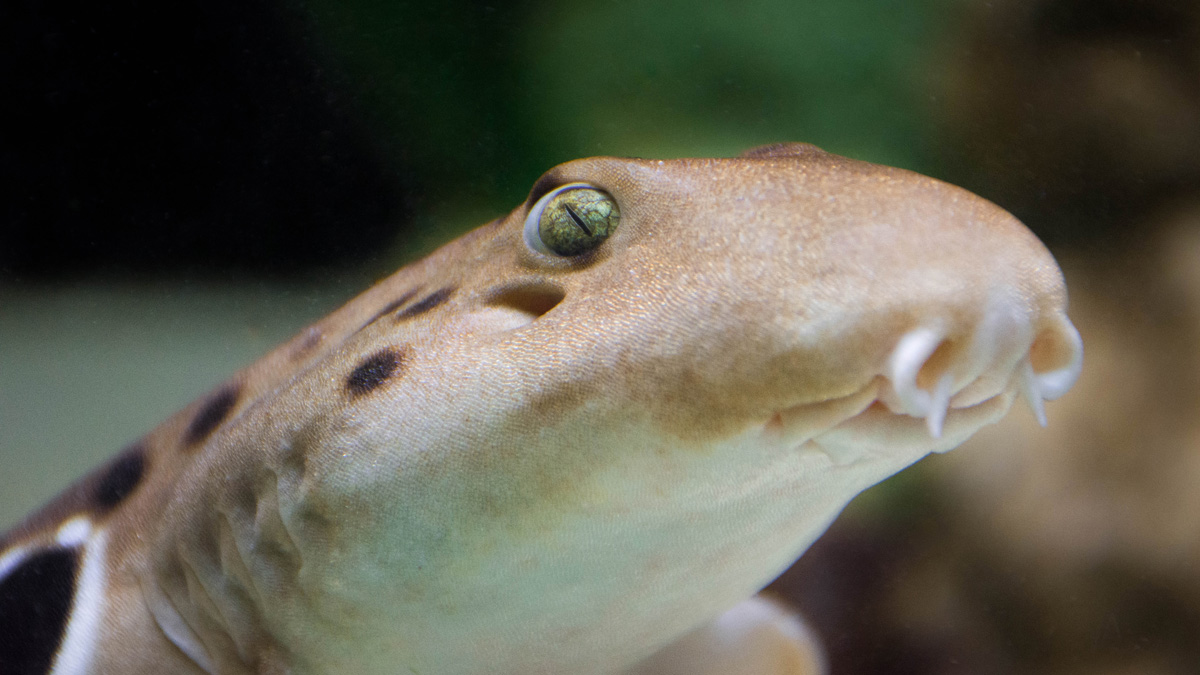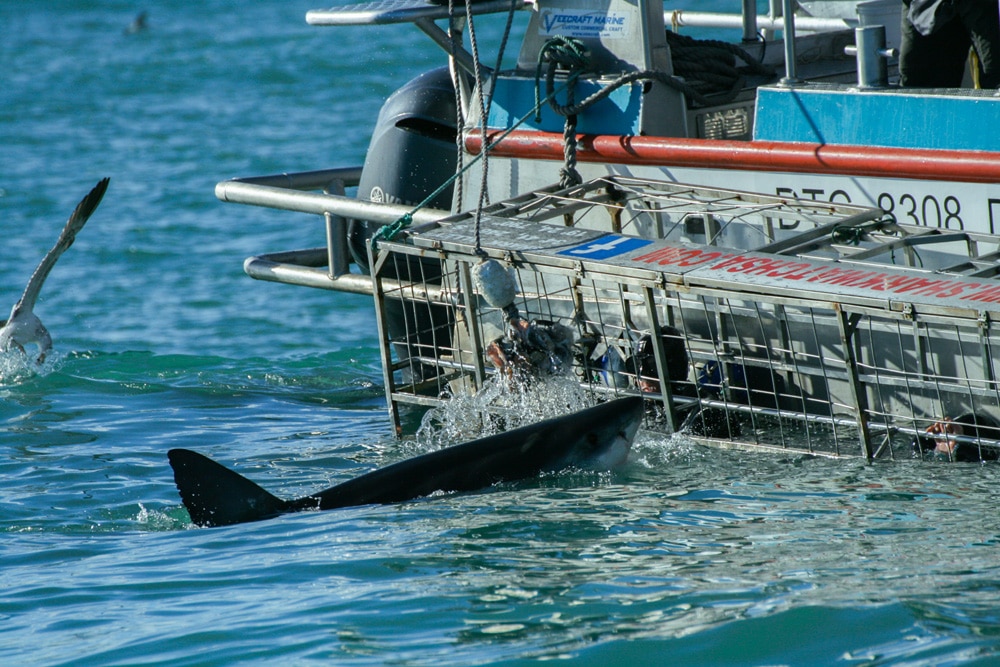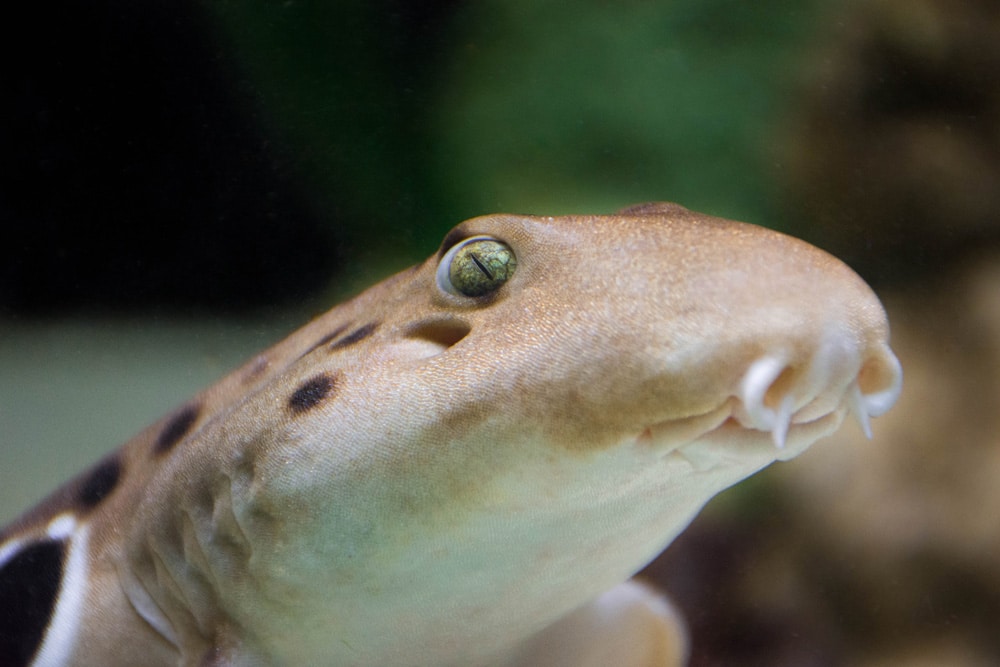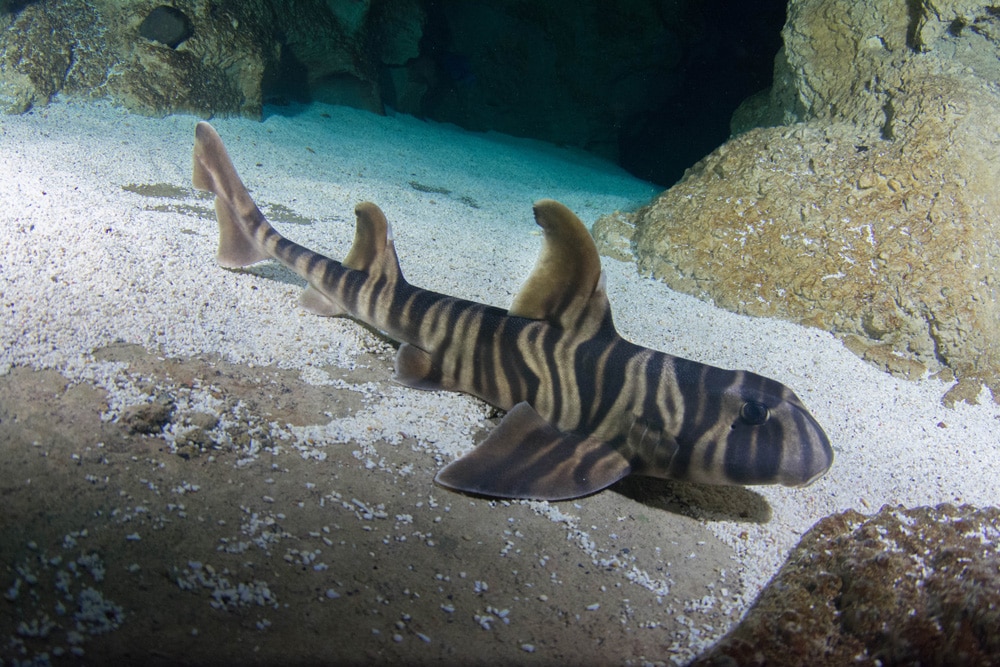Marine Life & Conservation Blogs
Sharks the Ocean’s Greatest Mystery – Part 2

Sharks are an incredibly significant animal in human culture of both the past and present, they are an animal that have been embodied in our culture for millennia. They are represented in formats such as books and clothing, but most notably in our TV and films, which is where a large portion of their negative reputation stems from. A popular TV representation of sharks comes from Discovery Channel’s ‘Shark Week’, and I believe sharks are possibly the only animal on our planet to have an entire week dedicated to them every year. However, despite this, we still know more collectively about the surface of the Moon and Mars, about Galaxies outside of our own, and even about animals that have been extinct for millions of years, than we do about sharks.
Sharks are our Ocean’s top predator, and they represent just how little we know about our blue planet. We have put more money into exploring outer space than we have exploring our seas and whilst many people call space the final frontier, I believe the final frontier is our Oceans. There are people that have lived in space for over a year, yet we aren’t able to stay underwater for more than a few short hours, and with each dive, scientists are discovering something new in the deep sea, giving us a better understanding of our oceans and the top predator that lives within them.
What we do not know
It is easier to talk about what we do not know and the implications of not knowing it, we still don’t know where most shark species mate or give birth, knowing this would accelerate conservation efforts for sharks in a huge way as these areas could then have realistic protections placed on them, allowing us to preserve key stages of the Sharks life cycle.
Marine Biologists have stated that the discovery of a White Shark breeding ground would be the holy grail of Ocean Science, but the only reports of White Sharks mating come from a handful of sightings from Fisherman and Sailors, so these cannot be used as an official record.
We know that Sharks mature late in the same way as us humans, it is estimated that some species are estimated to not be sexually mature until their late 30’s and 40’s, which means that these species are at extreme risk of disappearing due to fishing, as they aren’t able to replenish their numbers fast enough when put under extreme fishing pressure. There is a lot of debate over whether Sharks mature at a certain age or a certain size, for example it was estimated that White Sharks mature at four metres in length, however, in South Africa in 2017 a female White Shark was killed by Orcas, and it was determined that she was either immature or hadn’t mated, as there was the presence of a Hymen.
We are also still unsure about the impacts of human activities on Sharks and how losing Sharks, or their habitat, would affect the habitats and environments on land, environments in which we depend on for our survival.
What we do know
New Shark discoveries are made every year, and scientists are predicting that in the next 15-20 years we will be entering the golden age of ocean and shark discoveries. We already know that sharks are the oceans top predator and we have determined that they affect the very mechanics and functions of the Ocean, if we were to remove them, we would be putting the worlds ecosystems at risk of collapsing. Sharks are an integral part of the balance of the oceans, they help by controlling populations of other species, if we were to lose sharks, species such as turtles would have an increase in population, therefore leading to more seagrass being eaten, which is a prime food source for many animals. Thus, other smaller animals would not be able to feed, and their population would decrease, also the decrease of sea grass would affect us humans on earth as the oceans plant life helps to absorb carbon dioxide and create oxygen, and actually up to 75% of the oxygen we breathe is created from the oceans.
We know that some Shark species have complex social relationships that aid in their survival, although this has only been observed in a handful of species. Lemon Sharks form bonds as pups and hunt together in the shallow mangrove swamps of the Bimini Atoll, and will learn and hunt together and learn vital skills needed in their future survival. Hammerheads are possibly the most famous for social interactions as they form huge schools off places such as the Galapagos Islands and it has been observed that the more dominant females swim in the centre of the school and display for the males.
Some shark species, such as the Zebra Shark, have been known to mimic other animals. Zebra sharks are born with stripes (which fade as they get older) and they have the second longest tail (after the Thresher Shark), this helps them to mimic the highly venomous, White-Banded Sea Snake in order to trick predators into avoiding them, they have even been reported to mimic taking a breath at the surface like a sea snake would do.
It has recently been discovered that Greenland Sharks are now the longest lived Vertebrate on our Planet, they are believed to be able to exceed the age of 500, with females not reaching sexual maturity until they are around 150 years old. This was discovered by examining special proteins in their eyes that do not degrade with age. Determining age and sexual maturity are crucial for understanding and managing shark populations as knowing what age a Shark can breed will allow us to gauge what protections a species needs.
It has recently been discovered that female Whale Sharks are able to store sperm to use over a period of time, this is in order to ensure their chance of reproducing, even without recently mating. This is a huge advantage for conserving the species, as Whale Sharks are classed as an endangered species and so, with the number of whale sharks declining, this ensures the species can continue. Along with this, Whale Sharks have also been found to be pregnant with up to 300 pups, and these pups can be at different stages of development due to the staggered use of stored sperm.
Of all things we know there is one thing that is certain, a Shark, no matter the species, is unique and worth more to our world alive than dead. In the next blog we will explore the threats that Sharks face and how we can help Sharks through the tough times ahead.
Follow Donovan on Instagram at www.instagram.com/donovans_reefs
Blogs
Saba’s Plan for a Coral Comeback

Saba has an exciting new initiative to restore its coral reefs. This new project, running from 2024 to 2026, will focus on reviving key species in the island’s underwater ecosystems. With a collaborative team from the Saba Conservation Foundation (SCF) and Van Hall Larenstein (VHL) University of Applied Sciences, the project aims to restore both corals as well as sea urchins.
This initiative is centered around coral restoration, specifically reviving two essential coral species—staghorn coral (Acropora cervicornis) and elkhorn coral (Acropora palmata). By mapping parent colonies and using a technique known as coral gardening, SCF will create and maintain coral nurseries. These corals will eventually be outplanted at key reef sites around Saba to not only expand the number of coral colonies, but also provide essential fish habitat. The project focusses on installing coral nurseries, training staff with the newest techniques and starting with the restoration of key reef sites.

Reef Cleaners to the Rescue
It’s not just corals getting a makeover—this project also shines a spotlight on the essential role of grazers, particularly sea urchins. VHL is leading the charge on cultivating and restocking two key sea urchin species, West Indian sea egg (Tripneustes) and long-spined sea urchin (Diadema), known for their ability to keep algae in check. By removing algae, which are important competitors of corals, they help the coral to thrive. By restoring these “reef cleaners,” Saba’s project will give corals the breathing room they need to grow, setting the stage for a healthier, more balanced marine ecosystem.
From Tiny Urchins to Big Goals
The project will be funded as part of the Dutch Government’s Nature and Environment Policy Plan (NEPP) 2020-2030 for the Caribbean Netherlands, a comprehensive initiative aimed at conserving and restoring the unique natural environments of the Dutch Caribbean islands, including Saba, St. Eustatius, and Bonaire. This project is aiming for big milestones: build and maintaining coral nurseries, the expansion of urchin cultivation facilities, and the creation of a dedicated research center. By 2026, the project hopes to ramp up coral and grazer restoration, with the ultimate goal of extending these efforts across the Dutch Caribbean. By linking local initiatives to broader regional goals, Saba’s restoration project promises to leave a lasting impact on both the environment and the community.
Find out more about the DCNA at dcnanature.org.
Blogs
Reef-World marks two decades of marine conservation: strengthening impact amid coral reef threats

Empowering ocean stakeholders to tackle future challenges and ensure the survival of coral reefs and humanity
2024 marks the 20th Anniversary of The Reef-World Foundation’s tireless efforts for global coral reef conservation. The UK charity is the international coordinator of the UN Environment Programme’s Green Fins initiative, known as the leading voice in sustainable marine tourism. Today, Reef-World released its 2023-2024 Impact Report outlining a year of substantive growth and impact in its marine conservation programmes.

Impact Report Highlights:
- Impressive improvements in environmental behaviours to protect coral reefs by the marine tourism industry as the global participation of Green Fins increases.
- Continued capacity building for government and NGO staff to effectively manage marine tourism activities in Asia, Caribbean and Red Sea regions.
- For the first time in Green Fins’ 20-year history, tourism operators have achieved ‘Best Environmental Performer’ status by demonstrating the lowest possible environmental impact in their environmental assessments. In 2024, three dive operators achieved this challenging milestone.
- Significant increases in global participation of Reef-World’s innovative digital conservation tools.
- 138 Green Fins dive operator members achieved the strict threshold for PADI Eco Center recognition.
- Developed four new educational materials and translated two into 16 languages to support the marine tourism industry in achieving sustainability targets.
- Establishing a new Reef-World Development strategy and recruiting new roles – Development and Programmes Managers.
- Reef-World’s board welcomes new Chair and Trustees strengthening organisational leadership.

Reef-World started as a one-person mission to inspire and empower communities to act in conserving and sustainably developing coral reefs and related ecosystems. Today, the team of 12 continues to meet this mission by inspiring and empowering the global marine tourism community to be exemplary sustainability leaders by using the Green Fins guidelines and tools to simultaneously use and protect the world’s precious reefs.
In April 2024, the fourth global coral reef bleaching event was confirmed. Reef-World’s work has never been more urgent as the marine environment, and the benefits they provide humanity, continue to be eroded by global threats. The reduction of local threats, like those from the marine tourism industry, is an essential step to ensuring a future where coral reefs survive and continue to support the millions of people who depend on their ecosystem benefits. Reef-World’s work buys time for coral reefs and related ecosystems to be resilient to the impacts of global threats.
“Right now our corals are facing the greatest fight of their existence as the terrifying predictions of the steps towards their complete extinction are starting to come true. But all is not lost, reefs are resilient and they have existed on this planet for millions of years. We must take action now, to buy time for reefs by reducing threats facing them and allowing them to react and adjust to the changing environment they need to survive in.” – Chloe Harvey, Executive Director
Looking Forwards:
Like coral reefs, the Reef-World team needs to be resilient in the face of the complex challenges of the conservation sector. Reef-World has invested significantly in developing a Culture of Care to ensure the well-being of its team on a daily basis, continuing to be an exemplary employer to enable its team to best achieve the mission for coral reef conservation.
With the foundations of a Culture of Care and organisational development laid, Reef-World is emerging from the end of a natural organisation life cycle, that brings the challenges of growth and scale, stronger than ever. With a new strategy in place to generate much needed resources, Reef-World is excited for the opportunities to leap forward, continue to scale our impact and lean into new innovations and untapped opportunities for marine conservation.
We continually strive to become a forward-thinking organisation that delivers on our goals and commitments to our stakeholders with fresh approaches and not being afraid of steering away from a “normal approach.” This approach is not only applied to our programmes of work but also internally and carries over to our Culture of Care for our team.” — JJ Harvey, Operations Director

The Reef-World Foundation is immensely grateful for the continued support of its grant funders: UN Environment Programme, IUCN’s Blue Natural Capital Financing Facility, Adventure Travel Conservation Fund, PADI Aware Foundation, and World Nomads Footprints Program.
Reef-World would also like to express its gratitude to international partners whose vital support has resulted in significant tangible benefits for our work and mission: PADI; Professional SCUBA Schools International (PSS); Explorer Ventures; 1% for the Planet; ZuBlu; Snorkel Venture, GSTC; Dive O’Clock; Seven Dragons; DiveAssure and Eco Beach, without whom these achievements would not be possible.
The full 2023–2024 Annual Impact Report is available on Reef-World’s website.
-

 News2 months ago
News2 months agoIconic SS United States to become the World’s Largest Artificial Reef
-

 News3 months ago
News3 months agoBook Review – 52 Assignments: Underwater Photography
-

 Gear News3 months ago
Gear News3 months agoDYNAMICNORD – New German diving brand enters the British market
-

 News3 months ago
News3 months agoExploring Cenote El Pit: A Diver’s Dream
-

 Gear News3 months ago
Gear News3 months agoTry BARE drysuits (and maybe even win one!) this Friday with Sea & Sea at North West Dive Fest
-

 Marine Life & Conservation3 months ago
Marine Life & Conservation3 months agoBook Review: Coral Triangle Cameos
-

 Blogs2 months ago
Blogs2 months agoDive the Egyptian Red Sea this Autumn with Regaldive
-

 News3 months ago
News3 months ago2024 Ocean Art Underwater Photo Competition Announced


















